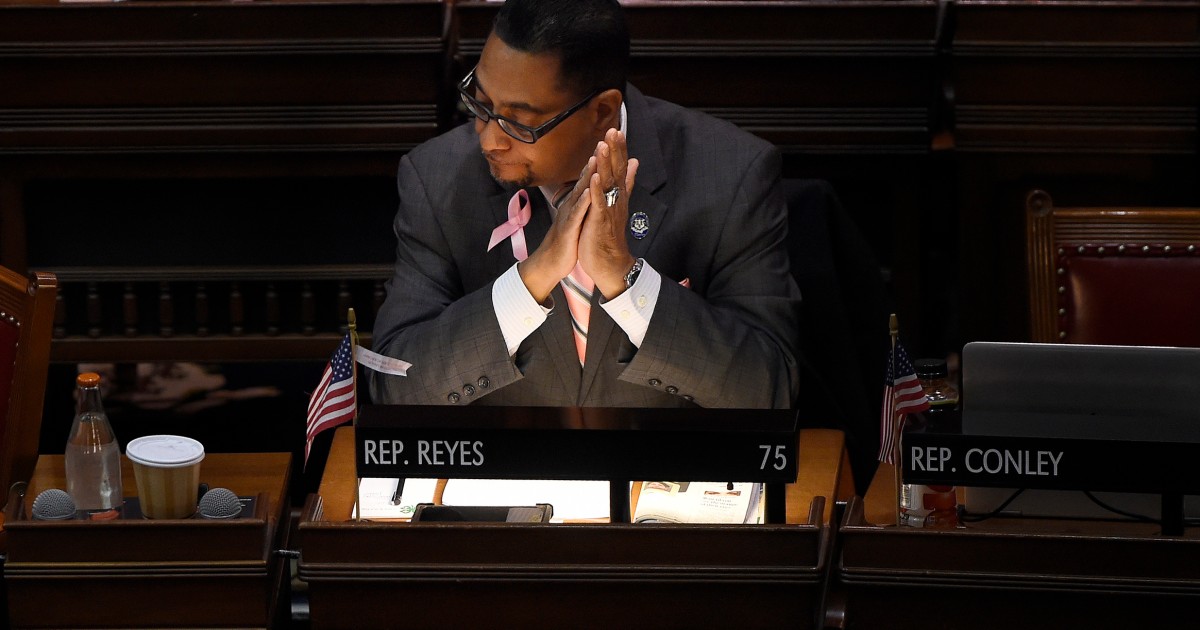A group of Hispanic state legislators in Connecticut have proposed that the state follow Arkansas' lead and ban the term "
Latinx
" in official documents, arguing that it is offensive to Spanish-speakers.
The term is used as an alternative to "Latino" and "Latina," and is useful to support people who do not identify as male or female, according to proponents of the word.
But Rep. Geraldo Reyes Jr., the main sponsor of the bill and one of the five Hispanic Democrats who signed it, claims that "
latinx
" is not a word in Spanish, but a
woke
term (as people who are aware of the racism and discrimination that exists in society) that is offensive to the Puerto Rican population of Connecticut.
[Axios Latino: The Debate Over the Term "Latinx"]
“I am of Puerto Rican descent and I find it offensive,” he said.
Last month, Arkansas banned public officials from using "
Latinx"
on official documents as part of several executive orders issued by the new Republican governor, Sarah Huckabee Sanders, within hours of taking office.
Florida Congressman Attempts Measure Against the Term 'Latinx'
July 14, 202201:35
Reyes says his motivation is different from Sanders', but he believes Arkansas' decision was the right one.
The League of United Latin American Citizens, the oldest Latino civil rights group in the United States, announced in 2021 that it would no longer use the term
.
“In the Spanish language, which is centuries old, by default it is Latin for everyone,” Reyes said, “it includes everyone, they didn't need to create a word, it already exists.”
[Hispanics do not feel identified with the term 'Latinx']
But Maia Gil'Adi, a professor of
Latinx
and Multi-Ethnic Literature at Boston University, said the
The term dates back to Latino and Latino youth and
queer
culture in the 1990s, and that the “x” is used to recognize many people's indigenous roots.
"I was afraid to speak": Paola Ramos highlights the importance for women of finding their own voice
March 28, 202203:40
“The word Latino is incredibly exclusive, both for women and for people who do not conform to the gender,” she said.
“And the term '
Latinx'
is very useful because of the way it challenges those conceptions,” she added.
David Pharies, a professor of Spanish at the University of Florida, said another move would replace the "o" and "a" in many Spanish nouns with an "e."
He said it would be easier for Spanish speakers to pronounce.
"
Latinx'
was clearly a solution that was proposed outside of the Spanish-speaking world," he said.
It is not clear how often the term is used in official documents.
A search on the state government website yielded 945 links to documents such as press releases, blogs and reports.
Michelle Dumas Keuler, an attorney with the Human Rights and Opportunity Commission, said that when asked, she uses the term in any complaint about housing, employment and discrimination, according to Hearst Connecticut Media.
Why is there a high level of rejection towards the term 'Latinx'?
The journalist Paola Ramos explains it
Dec 17, 202104:21
Reyes said he hopes there will be a hearing on the bill before the Committee on Government Administration and Elections of the Democratic-majority legislature during the current session.
Democratic Gov. Ned Lamont's spokesman, Adam Joseph, said the governor's office will continue the debate as the proposal moves through the legislature.

